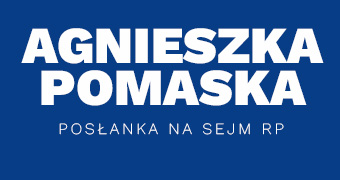The Inter-Parliamentary Conference on the Common Foreign and Security Policy and the Common Security and Defence Policy began on Monday 24 March in the Sejm Assembly Hall. The Inter-Parliamentary Conference comprises delegations from the relevant committees of the national parliaments of the Member States, primarily the Foreign Affairs and Defence Committees, and a delegation from the European Parliament. (…)
Władysław Kosiniak-Kamysz, Deputy Prime Minister, Minister of National Defence, spoke. – The diagnosis is already made, but after discussion and diagnosis, action is needed, and this is what Europe had a problem with. It needs to be made clear that we have been sobered up by a cold shower, especially in recent times. Even the war in Ukraine did not make us move into action with such impetus as recent events in the geopolitical space,’ said Deputy Prime Minister Kosiniak-Kamysz.
The head of the Ministry of Defence stressed that continuing to support Ukraine is a ‘fundamental issue’. – Every day of fighting in Ukraine is consuming the opponents of Poland, of Europe. It is wearing down those who threaten our fundamental values, our freedom and sovereignty. And the threat is very serious: it is the neo-imperial strategy of Russia, which will never leave this path,’ he said.
The event was co-chaired by the Chairwoman of the Sejm Committee for European Union Affairs, MP Agnieszka Pomaska, and the Chairman of the Senate Committee on Foreign Affairs, Sen. Grzegorz Schetyna. – The aim of the Polish Presidency is to achieve improvements in the development of military capabilities and defence production, while benefiting the transatlantic area and Ukraine. There is no doubt that the European Union needs to build its resilience and readiness to counter threats,’ noted Chairwoman Pomaska.
In her speech, she stressed that hybrid threats destabilise countries and societies. – EU countries are subjected to aggressive hybrid attacks led by Moscow, with the active support of Minsk. This is not only website blocking and disinformation activities, but also instrumentalisation of migration, espionage activities, interference in democratic processes, acts of sabotage and diversion. The Baltic Sea region is a particularly important area where Russian hybrid activities are carried out with great intensity. Repeated incidents of damage, disruption of undersea communication cables between Finland and Estonia, Finland and Germany, Sweden and Lithuania, are evidence of the escalation of Russian hybrid activities. The Baltic Sea is also an area of activity for the so-called ‘shadow fleet’ used by Russia for sabotage, espionage activities and violations of sanctions imposed on the country, she said.
She also recalled that ‘Poland is actively involved in combating hybrid threats. – Together with the Czech Republic and Lithuania, we have launched an EU ‘hybrid toolbox’ mechanism to coordinate and act proactively against threats. Together with the Nordic and Baltic states, we are engaged in current and future work on the security of critical infrastructure in the Baltic Sea region and, as a result of these activities, the NATO presence in the Baltic is also increasing, she pointed out.
– It is important for us to focus on cooperation and finding common solutions when it comes to security, regardless of the perspectives we have and it is worth bringing these perspectives together, she added.
source: sejm.gov.pl


